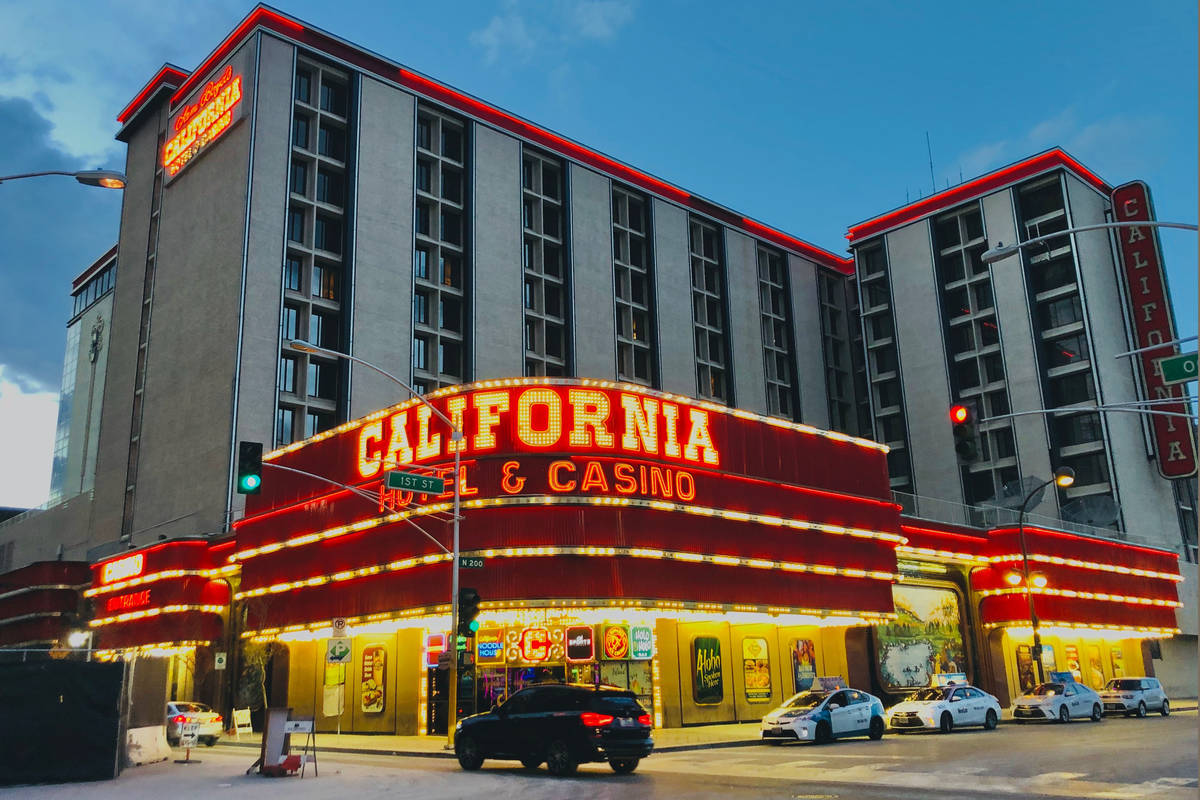Boyd Gaming reports 18% revenue drop in first quarter

During the 2008 financial crisis, Strip properties were much quicker to recover than Las Vegas’ local casinos, with a wider pool of visitors and variety of incremental amenities like dining and entertainment options.
Boyd Gaming Corp. executives don’t expect to see similar results during the coronavirus pandemic.
“People aren’t going to want to travel,” said Josh Hirsberg, Boyd’s executive vice president and CFO. “People are waiting to get back to a normalized life and want to get back to what they viewed as normal before the coronavirus … that can happen pretty quickly (with our properties).”
Strip operators have discussed a phased reopening with certain properties and amenities shut weeks past the reopening date, but Boyd President and CEO Keith Smith said he sees most — if not all — of Boyd’s local properties in Southern Nevada opening as soon as shutdown orders are lifted.
The strategy could be a major boon for the casino operator, which reported a substantial drop in revenue in the first quarter as it works to preserve liquidity amid nationwide casino shutdowns.
Preserving liquidity
Boyd’s revenue dropped 18 percent to $680.5 million in the first quarter of 2020, compared to $827.3 million in the same period the previous year, according to preliminary results.
Smith believes the company is “well-positioned” to sustain itself through the closure period, and plans to emerge on the other side as a more efficient and operationally-focused company.
The casino operator has made a series of steps in recent weeks to mitigate the financial impact of the COVID-19 pandemic.
Most staff members have been placed on furlough, and company executives are set to take “significant salary reductions,” according to a statement released April 8. All nonfurloughed members at its corporate and property management teams are taking a salary cut, and Boyd’s board of directors has agreed to suspend its compensation.
Additionally, all capital projects and Boyd’s cash dividend program have been suspended, and all nonessential spending has been postponed indefinitely. These steps are meant to ensure the company will have sufficient liquidity and resources to sustain itself until it can reopen.
These changes allowed the company to drop its monthly cash requirements to $60 million per month and gave it the ability to “weather the crisis” and be prepared for the resumption business, Hirsberg said.
As of March 31, Boyd had $831.2 million in cash on hand and $4.44 billion in total debt.
Getting ready to reopen
Boyd’s 29 wholly owned gaming properties — 12 of which are in Nevada — remain closed to the public. It’s not yet clear when Nevada will allow casinos to reopen, but Boyd currently is accepting reservations for its Las Vegas hotels beginning May 15.
Smith said the reopening time line will likely look different across all the states in which the company operates.
He’s optimistic locals will be some of the first to return to casinos, and Boyd will lead the gaming industry’s recovery.
“The majority of our business comes from local customers. We are not reliant on destination or convention business for success,” Smith said. “We believe we will benefit from a business model that is largely focused on local and regional visitation.”
Smith pointed to Boyd’s Las Vegas local market, which brings in a large percentage of business from retirees. Smith said little has changed for them in terms of discretionary spending money.
“Those retirees didn’t have a job before this started, don’t have a job now. They still have their income,” he said.
Smith also expects to see pent-up demand among the local segment, enough to allow Boyd to open most of its regional properties in Southern Nevada and other states as soon as they’re allowed.
“Each of the properties is in a very distinct part of (Las Vegas), and has a very distinct customer base,” he said. “I would see us opening most, if not all of them, as soon as we’re allowed to open them because they all have a largely different customer base. So I don’t see a phasing.”
The only outlier may be the company’s three downtown properties — Fremont Hotel, Main Street Station and California Hotel — since that area relies on visitors to the Fremont Street Experience and the Hawaiian market, who may be more averse to traveling to Las Vegas during the pandemic.
Overall, Smith expects to see some level of demand once the shutdowns are lifted, enough to continue the company’s laid back promotional strategy.
“We, as a company, don’t plan on going out there and instituting a marketing war simply to get people in the building,” he said. “People are looking for an escape, and once again I think when we reopen we will be part of that escape.”
While Boyd has yet to release a detailed outline of what its sanitation protocols will look like, Hirsberg said the properties are “going to look different,” with increased social distancing and fewer people in the building.
He added that altering or temporarily doing away with some amenities — such as buffets — during the outbreak could help offset the costs needed for extra sanitation measures, according to Hirsberg.
“I can’t say with confidence that on day one we’ll be cash-flow positive, but it doesn’t take much to be cash flow positive,” he said. “You can bet we’ll be focusing on running the business to get there as quickly as possible.”
Contact Bailey Schulz at bschulz@reviewjournal.com or 702-383-0233. Follow @bailey_schulz on Twitter.